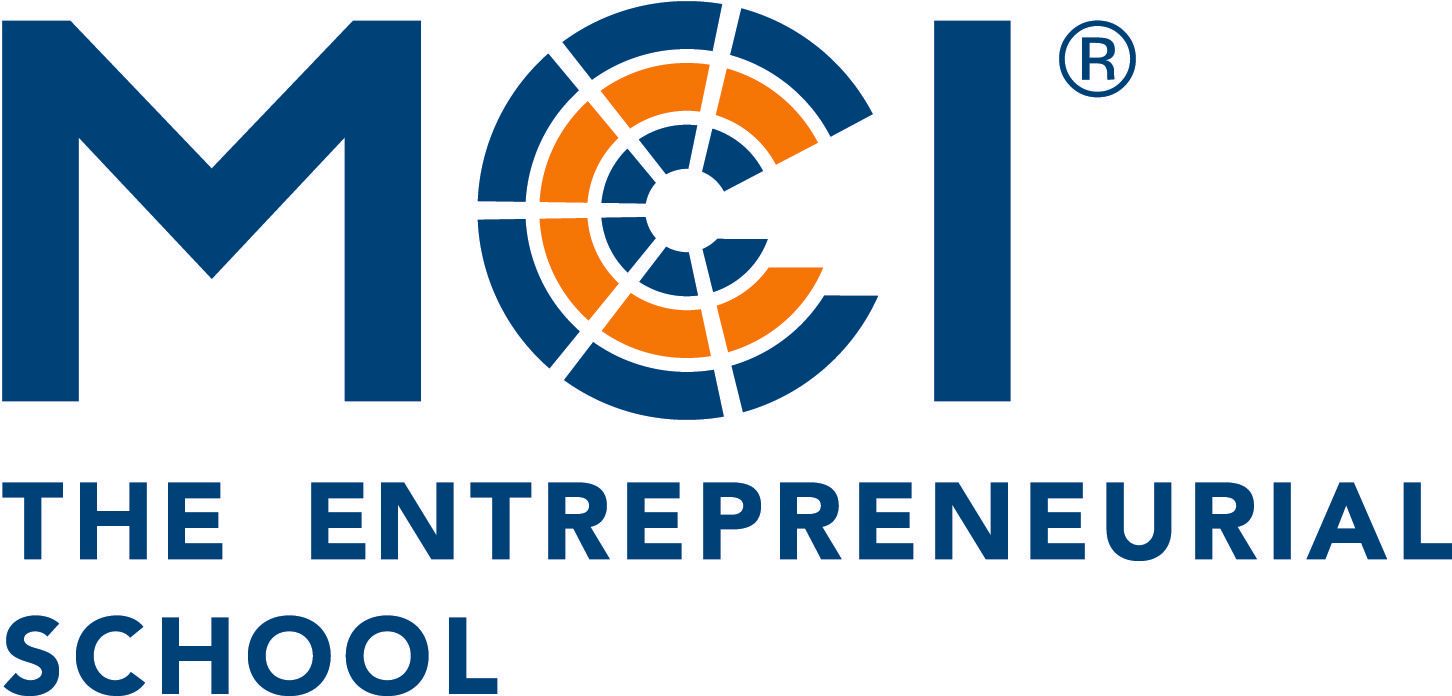CALL FOR PAPERS
LOST IN TRANSITION? Entrepreneurs in Times of Technological, Economic and Societal Change
We live in the midst of a deep technological, economic and societal transition. The digital transformation brings so many changes associated with digital technologies and their integration into all aspects of human life and society. It fundamentally changes how organizations operate and create value to their customers. These changes go hand in hand with new big societal challenges of our time.
How can entrepreneurs and entrepreneurship help navigate these fundamental challenges of today?
We seek to bring together researchers from multiple disciplines, backgrounds and countries, to discuss how entrepreneurship can help address the big technological and societal challenges of our time and make the transition to a sustainable and also more equitable digital economy.
Entrepreneurship research has blossomed into a very broad field of research over the past two decades. We hope to reflect this diversity in this years’ conference. To operationalize the theme of the conference we ask all presenters to briefly reflect on how their research subject relates to the overall theme in their abstract and introduction.
We invite researchers to submit abstracts and papers for presentation in one of the tracks that will be chaired by eminent scholars in the field.
Academic Entrepreneurship
Innovations are essential for economic growth in knowledge-driven societies and especially research outcomes of academics in institutions of higher education are an important source of commercially utilizable knowledge and innovations. Therefore, these institutions make great efforts to establish an infrastructure that facilitates commercial exploitations of academic inventions, e.g. by incentivizing academic entrepreneurship. However, academic knowledge of great commercial potential seems to remain – at least to certain degrees – unexploited in institutions of higher education.
cultural and creative entrepreneurship
The arts and cultural sector and in particular, the creative industries, are growing in Europe and in other western societies, as well as in Asia. Cultural and creative entrepreneurship (CCE) has become a topic of high interest in debates around innovation and growth in the context of the creative industries and is an emerging field in the wider entrepreneurship scholarly business agenda. Download pdf
Digital Technologies, Entrepreneurship and Innovation
The long tradition of entrepreneurship research has mainly focused on “how, by whom and with what consequences opportunities to produce future goods and services are discovered, evaluated and exploited”. Alongside the ongoing digital transformation of economies driven by the diffusion of digital technologies, a multitude of new entrepreneurial opportunities is emerging. Download pdf
entrepreneurship Education
Research on entrepreneurship education has been growing and has resulted in interesting challenges for the institutions delivering and supporting this education. The literature indicates important linkages between education, business creation and entrepreneurial performance. Entrepreneurship education aims to “convince” students to be responsible, as well as enterprising individuals who became entrepreneurs helping in the development of sustainable communities. In fact, entrepreneurship education is not just about teaching someone to run a business. It is also about encouraging creative thinking and promoting a strong sense of self-worth and empowerment. Download pdf
Entrepreneurial ecosystems and start-up programmes
Over the last decades there is increased attention for how different contexts influence entrepreneurship. Two prominent ways to conceptualise this context are through entrepreneurial ecosystems at the regional level and start-up programmes that interact directly with start-ups. The common notion is that these contexts are crucial in understanding the emergence, and development of start-up firms. In turn, these start-ups and other stakeholders actively shape these contexts. Understanding these dynamics helps explaining how these contexts come about and how they influence the direction, efficiency, speed, and success of entrepreneurial activities. Download pdf
Entrepreneurial and alternative Finance
Addressing challenges in our dynamic economies such as the sustainability and energy transition and digital and biotech revolution, requires entrepreneurs and small firms that commercialise novel and disruptive technologies. Start-ups and small- and medium-sized firms (SMEs) are, however, often highly capital-constrained. Recent developments in technology and regulation gave rise to new forms of entrepreneurial finance. Some financial instruments like crowdfunding in its various forms are maturing, whilst others like initial coin offerings (ICOs) are only now becoming available. In addition ‘classical’ forms of entrepreneurial finance continue to exist in the financial ecosystem for entrepreneurship increasing the entrepreneur’s potential choice. Download pdf
ENTREPRENEURIAL, INNOVATIVE AND SUSTAINABLE ECOSYSTEMS
The holistic construct of an (E)ntrepreneurial, (I)nnovative and (S)ustainable ecosystem refers to the collective and transversal nature of entrepreneurship, innovation and sustainability. New firms emerge and grow not only because there are entrepreneurs that created and developed them. New ventures emerge also because they are located in an ecosystem made up of private and public stakeholders, which nurture and sustain them, supporting the inventive and innovative action of entrepreneurs. Download pdf
Family firms
Family firms, that frequently emerge when owner-leaders of entrepreneurial ventures wish to perpetuate their economic activities, are globally the most frequent firm type. Their contributions to growth, innovation, robustness and longevity are substantial to the success of the global economy, making them a pillar for sustainable prosperity and development. Download pdf
Geography of Entrepreneurship
We have known for long that the supply of entrepreneurs, and hence entrepreneurship itself, do not distribute equally across space. National, regional, or local conditions and dynamics influence the rate at which new companies are created across different industries and over time. Multiple factors are known to contribute to the entrepreneur’s location decision, either at individual level (e.g., prior knowledge, social capital) or the regional ecosystem level (e.g., industrial structure, institutions and culture).
OPEN INNOVATION and International Entrepreneurship
Entrepreneurial new ventures collaborate with other firms and organizations, most notably, multinational enterprises, higher education and research institutions, from the nearby and international locations. To successfully engage in innovative organizational practices and achieve increasingly more sophisticated markets, both new ventures and their larger counterparts rely on internal capabilities, as well as external sources, drawn from collaborations with increasingly internationalized partners. Download pdf
Institutional Reforms for an Entrepreneurial Society
The US has been pushed out of its model of the managed economy towards a more entrepreneurial society over the past decades. Competition from Europe and East Asia forced the US to reinvent itself. To continue operating at the global technology frontier, the US developed a new model in which entrepreneurs play a key role and the economy might return to the Schumpeter (1911) Mark I model of capitalism in which small scale experimentation and quick scaling of successful innovations is the source of economic growth and prosperity. Download pdf
SMART CITY Innovation
More than half of the world’s population lives in cities (UN, 2018). This is a first in human history and it comes with new challenges. In the sprawling urban jungles people need a range of services to live a happy, fulfilling and healthy life. Smart City Innovation refers to innovations that make life in the city better by using data that is increasingly available on a wide range of things in the urban environment. Using data from sensors in the urban environment, services can be designed and delivered to create value and benefits, even for the poor. It is an open question if such innovation requires a different approach or whether it is “entrepreneurship as usual”. Download pdf
SOCIAL Entrepreneurship
The academic field of social entrepreneurship is emerging rapidly. Aside from the definitional and existential debates, progress has been made into outlining conflicting logics and tensions, linking to trade-offs between the social and financial goals social entrepreneurs strive for. While new datasets are becoming available, relevant questions that require an interdisciplinary approach have so far remained largely unaddressed, such as the role of institutional frameworks and local ecosystems for social entrepreneurship, and stakeholder responses to tensions typically encountered by social entrepreneurs. Download pdf
Entrepreneurial Wellbeing
Running a business is often seen as a solution to a number of social and environmental problems. Accordingly, the wellbeing of individuals has been getting more intention these days as wellbeing is regarded to correlate with social progress. Along those lines, the interest of entrepreneurship research on the individual’s entrepreneurial wellbeing – defined as “the experience of satisfaction, positive affect, infrequent negative affect, and psychological functioning in relation to developing, starting, growing, and running an entrepreneurial venture” – has increased significantly in recent years. Download pdf
Technopreneurship
Technology is a new combination of productive factors, based on the usage and knowledge of tools, crafts, organizational methods and systems, for solving certain problems or providing services, which can yield different types of innovations. Technology, like entrepreneurship, has added another dimension to the human life. Many employment forms have arisen from some form of techno-preneurial venture. From entrepreneurship for profitable purpo-ses to social and sustainable entrepreneurial ventures, the world is now respecting the transformative power of technopreneurship. Download pdf
Submission Guidelines
Full Research Papers
Full research papers should have completed analyses and discussion of results. Full papers should be similar to journal submissions, but shorter as they should not exceed 14 pages. Papers must conform the IECER 2020 submission template.
All submissions must be in Adobe pdf. Files submitted in other formats or that do not use the submission template will not be considered for review.
You can download the submission template here
All text, figures, tables, and appendices must be included within the page limit. The cover page, abstract, keywords, and references are excluded from this page count.
Review criteria for full research papers:
- Topic is relevant to the selected track theme.
- Objectives / research questions are clear and well-described.
- Paper is written clearly.
- Paper is well organized and flows logically.
- Literature review is appropriate.
- Methodology is appropriate (if relevant).
- Analyses are appropriate (if relevant).
- Paper makes a useful contribution.
Research-in-Progress Papers
Research-in-progress papers typically describe work that is as yet incomplete, but promising. Research-in-progress papers must not exceed 5 pages. Papers must conform the IECER 2020 submission template.
All submissions must be Adobe pdf format. Files submitted in other formats or that do not use the submission template will not be considered for review.
You can download the submission template here.
The cover page, abstract, keywords, and references are excluded from this page count.
Review criteria for research-in-progress papers:
- Topic is relevant to the selected track theme.
- Objectives / research questions are clear and well-described.
- Paper is written clearly.
- Paper is well organized and flows logically.
- Literature review is appropriate.
- Methodology is appropriate (only if relevant).
- Analyses are appropriate (only if relevant - research-in-progress papers may not yet have data to analyze).
- Paper has the potential to make a contribution.
























